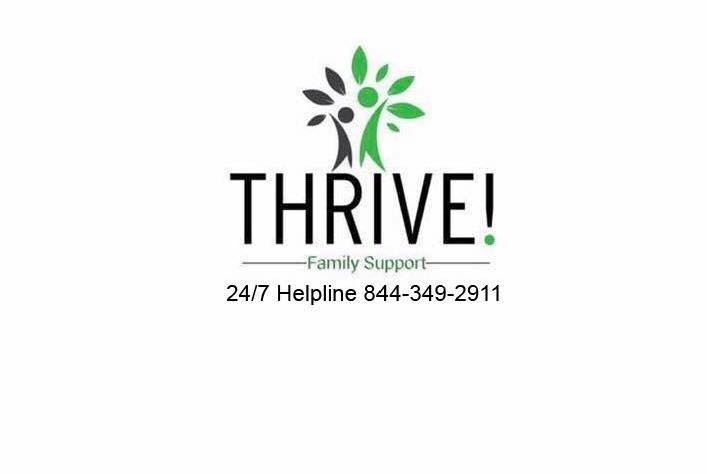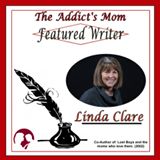
My husband and I ought to have permanently melted ears by now. Over the past years, our three grown sons with addiction have cursed us, called us awful names and vowed that they hate us.
The old schoolyard taunt declares, “words can never hurt me.” Moms and dads of those with addiction know that’s so not true. Our grown sons have hurled words that have hurt more than sticks or stones ever could. If you have a prodigal, chances are that you’ve heard a few choice words too.
My dear ex-Marine husband of forty-plus years takes all the verbal sniping very seriously. I’ve joked that he’s like Marty McFly in the “Back to the Future” films—you just don’t walk away from name calling. I tell hubs that he could make a boundary and stick to it. But so far, he’d rather fight back or let his hurt fester.
Our sons don’t spare me, either, though. They may be a tad more reluctant to cuss at me—I’m female, after all. Yet when the target on my back gets hot enough, their darts sizzle on my backside too. For years, I played along, shouting back insults to their insults.
From You have to stop! To Loser. I’ve landed some punches too.
Not anymore. I’m finally understanding the power of words—especially my words. To create a new dialogue, I must separate the son I love from his addiction. This separation isn’t magic. It’s the product of months and months of educating myself about changing my own attitudes. And my words.
I’ve discovered that my words to them now can influence their words to me later on.
Recently, one son was so upset that he literally turned purple as he screamed. It took us all evening to figure out what he was on about. I won’t repeat any of the mean things our precious son said, but he was a victim: We never took his side. We shouldn’t tolerate his brother’s addiction, who by the way was a piece of ahem. We were the most terrible parents ever. And on and on. Door slamming. Stomping around the house and out to the yard and back inside. Slam. Stomp. Eff you.
I came close to calling the cops (If I didn’t, surely the neighbors would). But I held fast to my newly-gained insights. How I spoke to him now would influence how he spoke to me later.
I waited for a lull in the ranting. This guy has a habit of spewing and then retreating, only to come on strong a little later. During a rest, I talked to him about his problem. But I didn’t say he really needed treatment. I didn’t say how hurt I was. I didn’t say his dad was mad. I may have said you might want to dial it down so the cops don’t come like last time.
I gave him my sincere attention. I told him I could see how much he was hurting. I didn’t take the bait when he began to rail about my faith. I kept my focus soft to convince him that I saw him. Really saw him.
It’s so human to retaliate when we’re hurt. I’ve had to practice and I still don’t always get it right. But I have decided that unlike my poor PTSD husband, we’re not at war. It does take strength and courage to see through all the layers of pain and defensiveness. I do it best when I keep a vision of my son, head up, smiling and open to possibility, front and center. It’s the son I know is in there, the one who may not say so but who’s dying to be well.
Please understand, I don’t stay and talk nice if there’s menacing or violence involved. I also don’t advocate fulfilling their every need—my help stops at food and shelter. But I’ve seen real progress in reconnecting to my sons by treating them as human beings that I love.
By looking into those gorgeous eyes and saying, “Sounds like you’re really hurting.”
In cultivating this way of speaking to my sons, I create “green light moments” to talk about what our sons already know. That they’re sick, that they don’t like their lives. In most cases they already loathe themselves. I refuse to affirm that I loathe them too.
Words. When you love someone with addiction, rough language and hurtful comments are included at no extra charge.
Yet I always ask myself how I’d feel if my family said I was no good, “just” an addict or that I’d never amount to anything.
I’m proof that it’s possible to speak to a loved one who hurts without hurting back. The result is a son who talks much less trash and is easing away from playing the victim.
Yes, it takes practice. Maybe start by practicing speaking respectfully, in a true listening posture, to the person you see in your mirror—you. With determination, you might get a “green light” moment instead of melted ears.








Wow — praying for you …and yours….and patient love …. Think you have to be “winning” in the many inning activity. I care.
Margery,
Thanks so much. It is not easy but it is simple–like a lot of Jesus’ ideas. I think it is better to be kind than it is to be right.
Thanks for reading and for caring!
Linda